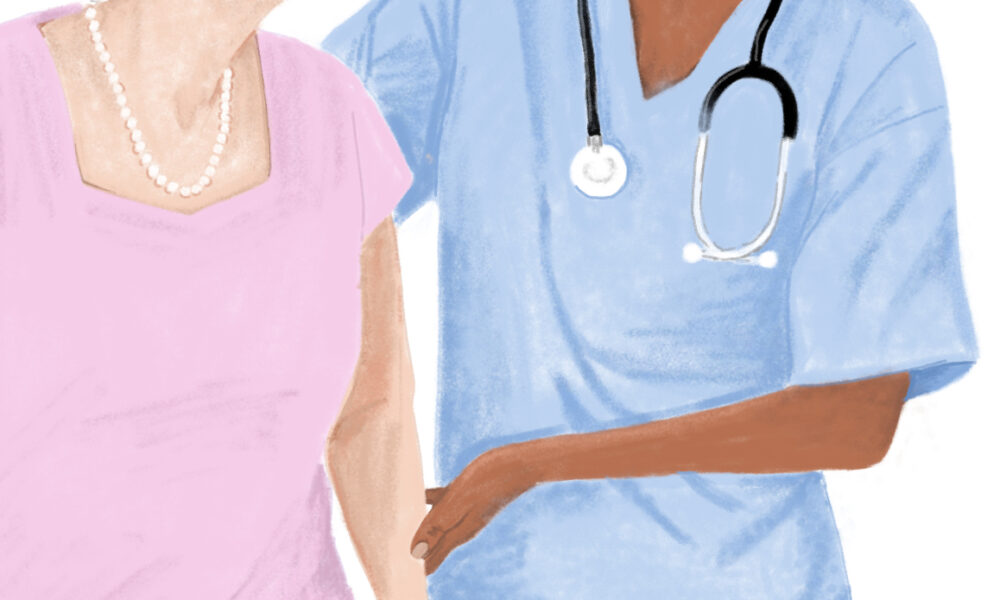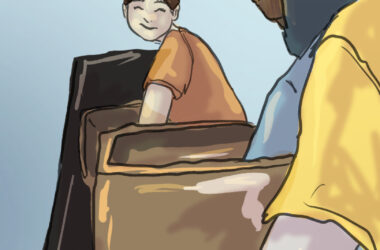In the face of the Palestinian genocide, Canadian occupational therapy institutions have largely remained silent. This institutional silence has deeply affected many practitioners, who must navigate both ethical responsibilities and moral obligations.
To challenge this lack of a clear institutional stance, Hiba Zafran, assistant professor in McGill’s School of Physical and Occupational Therapy, and Pier-Luc Turcotte, editor of nursing journal Aporia, co-authored a commentary with collaborators titled “Shattering Silence, Inviting Dialogue: Anti-Oppressive Occupational Therapy During the Genocide of Palestinians.”
The piece argues that occupational practitioners cannot be disconnected from global conflicts and systemic oppression abroad. Thus, they find it concerning that institutions have not even opened a dialogue.
“In this context, deliberate silence is part of the system of oppression and the colonization of Palestine,” Zafran said in an interview with The Tribune.
This institutional silence also reflects a form of hypocrisy.
“As healthcare professionals and occupational therapists, we have the duty to defend human rights,” Turcotte told The Tribune. “And collectively, we all have an obligation to speak against and prevent a genocide when it occurs.”
Notably, the Competencies for Occupational Therapists in Canada explicitly states that practitioners must be anti-oppressive and advocate for social justice. However, many who have spoken for Palestine have been silenced, primarily accused of antisemitism.
“There has been a whole global narrative suggesting that [talking about] Palestine automatically means being anti-Jewish, which is simply not true,” Zafran said.
In some cases, censorship has had devastating effects on students, with some being threatened with the loss of internship opportunities because of their social media posts. The concept of neutrality adopted by Canadian occupational therapy institutions is misused in a harmful way.
“In this context, they are going against the principle of medical neutrality when they refuse to aid an entire population out of fear of being accused of antisemitism,” Turcotte said.
Zafran pointed out the inconsistency in institutional responses to oppression.
“There were some very positive developments in 2020 regarding […] the launch of equity, diversity and inclusion and anti-racism plans,” Zafran said. “Our association issued a statement, ‘No silence in the face of any injustice,’ which was cited by occupational therapy associations all over the world. [….] And when we get to [the genocide of Palestinians], it is just total hypocrisy.”
For healthcare professionals, institutional inaction has had consequences in the workplace.
“In our daily life, with our patients and colleagues, we are walking on eggshells. It is a betrayal of our very ethics, our competencies, and the philosophy in our profession,” she said.
In Canada, occupational therapists work with patients impacted by the genocide. Many Arab, Palestinian, Jewish and other patients have also been affected by the genocide in Canada—some are recalcitrant about opening up to their therapist.
“There are practitioners who, in their work, meet people who are concerned about what is happening, […] and who live with grief and trauma on a daily basis,” Turcotte said. “The work of these practitioners has been impacted [….] Some [patients] even avoid coming [to the hospital] because they do not feel safe in certain clinics or hospitals due to their reputation.”
To advocate against oppression, we must avoid replicating colonial and oppressive patterns responsible for oppression in the first place.
“To me, anti-oppression is all in the process, not just in the hope for an outcome,” Zafran said. “If we have an anti-oppressive process, then the outcome is that we have changed how things are done, and that is going to lead to what we hope for.”
Compassion, kindness, and taking time to think about others can all contribute to effective anti-oppression advocacy.
“It is important to sometimes slow down the pace of our actions […] to ensure that we are acting in the best interest of everyone,” Turcotte said.
For students engaged in advocacy work, Zafran recommends moving beyond criticism.
“If [we] want hope, then [we] need to go beyond resisting the world [we] do not want,” she said. “[We] also need to build the world that [we] want. And to do that, we need to treat each other the way that we want to be treated, even in advocacy spaces.”
*All quotes were translated from French.








